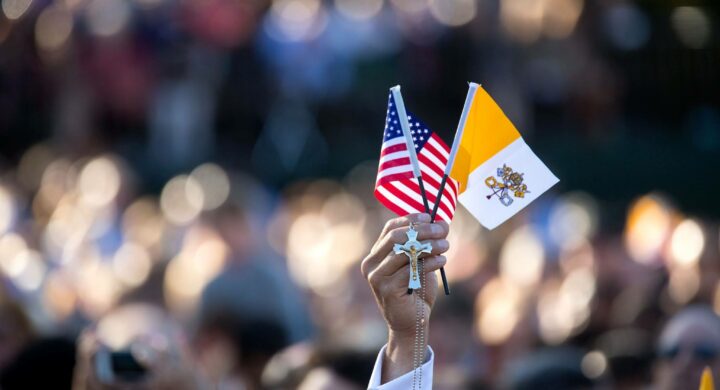The Biden administration will overhaul Trump era policies. What will it mean for the Vatican and religious freedom, and what impact will it have on US geopolitics?
Joe Biden is set to become the next president of the US. His entourage is gearing up to restore the nation’s international ties, seeking to repair the damage dealt by President Donald Trump.
The past four years have seen a decrease in Washington’s moral leadership and international influence, as Mr Trump’s “America First” policies and his disengagement from multilateral forums botched the US’ historic global outreach.
The president-elect has promised to reverse the course and reach out to allies, in a bid to reinstate Washington’s power to impact global issues. And as the matter of religious freedom is seeping back into the public limelight, Mr Biden is likely to look towards a soft power behemoth: the Vatican.
The US relationship with the Vatican has been frayed by US partisan issues, catalysed by Mr Trump’s administration. The Christian right, who generally sides with him, is opposed to what it perceives to be the pope’s “liberal” agenda (which is explicated in his latest encyclical).
Mr Biden, a devout Catholic and a Democrat, has recently declared that his political views coincide with the Catholic social doctrine. He pledged to reunite his divided nation and heal the festering wounds that are polarising it, asking his supporters – in a convincingly Christian fashion – to “reach out to a Republican” during his victory speech.
In turn, the pope’s attention to climate change, the plight of refugees and favour towards multilateralist approaches resonates well with Mr Biden’s campaign promises (and Democratic platform). Francis’ recent approval of gay civil unions, too, parallels the Democrats’ attention towards the LGBTQ community.
L’Osservatore Romano, the Vatican’s communication office’s publication, hailed Mr Biden’s victory with great emphasis by placing it on its front page. The piece also mentioned Mr Trump’s decision to go to “war” by disputing the results.
In short, the president-elect sees eye to eye with the Vatican far more than the Trump administration ever did, as argued by Pasquale Annichino, Senior Research Associate at the Cambridge Institute on Religion & International Studies of Cambridge University.
There is one main contentious point, and it involves China, where boundaries between geopolitical and ideological matters blur. The Trump administration has engaged in a holistic conflict with Beijing, dubbed a “new Cold War” by commentators.
This ended up impacting US-Vatican relations, especially since the Vatican and China were themselves tangled in a complex and secretive diplomatic matter. In September, Secretary of State Mike Pompeo had launched an attack on the Holy See’s China policy mere days before his scheduled visit.
Mr Pompeo had slammed the Vatican-China deal on the nomination of bishops, denouncing the incompatibility of the Holy See’s values with Beijing’s crackdown on religious and ethnic minorities (such as Uighur Muslims in the Xinjiang region).
The Vatican had denied him audience with the pope, accusing him of trying to drag it into the US elections dynamics (as Mr Trump was campaigning on additional pressure on China, commercial and otherwise, and catering to his Christian supporters).
Mr Annichino does not believe that a Biden envoy would suffer the same treatment. Still, it is commonly accepted that Mr Biden will maintain the US’ hard posturing on China, as the rise of the Dragon has become a bipartisan concern.
Regarding China, “the US commercial agenda has intertwined with that of human rights and religious freedoms,” argues the researcher. “I believe that the commercial pressure will continue, and that pressure on human rights might even increase.”
The latter, he says, will likely be extended to other countries – such as Turkey and Russia, for instance, whose human rights violations have not been fiercely targeted by the Trump administration the same way as with China.
The Turkish President Recep Tayyip Erdoğan, for instance, is no stranger to religious freedom abuses. He has also been stoking religious tensions, both in the aftermath of the recent terror attacks in Europe, and by converting the Hagia Sophia, a former Church and museum in Istanbul bearing great significance for Christianity, into a mosque.
Mr Trump balanced his administration’s international efforts with his realpolitik-imbued, disengagement-prone view of foreign policy. Mr Biden, instead, is more likely to adopt a more comprehensive and diplomatic approach to human rights, one capable of influencing rivals and allies alike, and thus favouring, inevitably, the Vatican’s.








